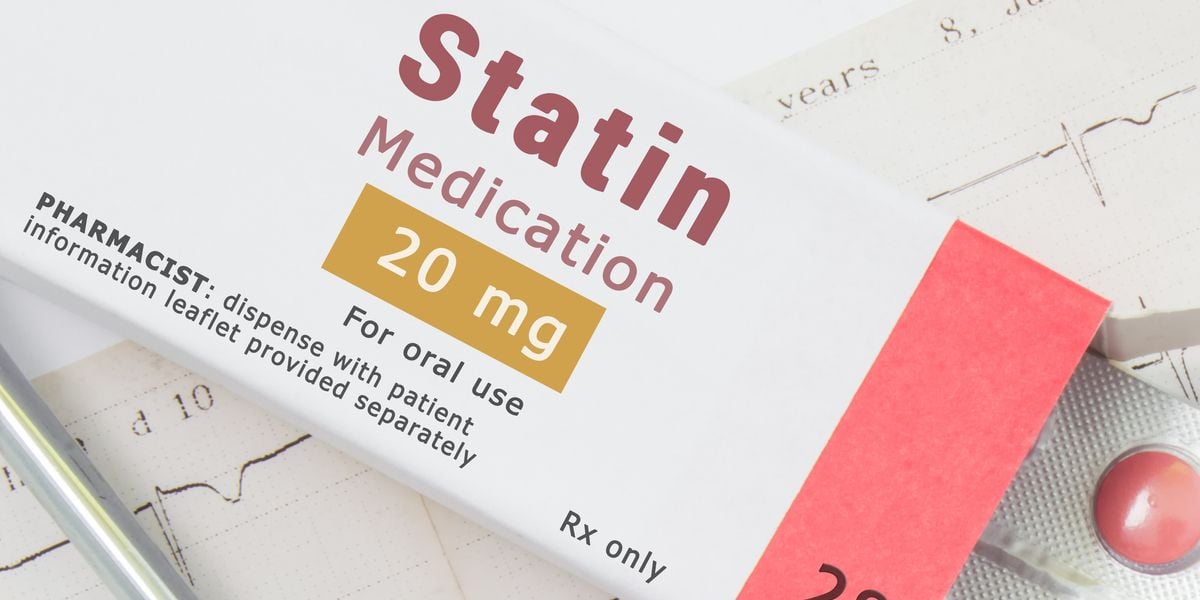
Statins are a widely prescribed class of medications known for their effectiveness in lowering cholesterol levels and reducing the risk of heart disease. As a crucial component of cardiovascular care, statins have garnered significant attention in the medical community and among individuals seeking to manage their heart health. Understanding the key facts about statins is essential for making informed decisions about their use and potential benefits.
In this article, we will delve into 12 essential facts about statins, shedding light on their mechanism of action, potential side effects, and their role in preventing cardiovascular events. Whether you are currently taking statins, considering them as a treatment option, or simply seeking to expand your knowledge of heart health, this comprehensive guide will provide valuable insights into the world of statin medications. Let's explore the facts, dispel myths, and gain a deeper understanding of these widely prescribed cholesterol-lowering agents.
Key Takeaways:
- Statins are powerful medications that help lower “bad” cholesterol, reducing the risk of heart disease and stroke. It’s important to discuss any concerns with a healthcare provider to ensure safe and effective treatment.
- Statins, like Lipitor and Zocor, are often prescribed long-term alongside lifestyle changes. They have revolutionized cardiovascular care, but it’s crucial to stay informed about potential side effects and ongoing research.
Statins are a widely prescribed class of medications.
Used to lower cholesterol levels in the blood, statins are commonly prescribed to reduce the risk of heart disease and stroke. They work by inhibiting the enzyme HMG-CoA reductase, which plays a key role in the production of cholesterol in the liver.
Statins have been shown to be highly effective in reducing LDL cholesterol.
LDL cholesterol, often referred to as "bad" cholesterol, is a major risk factor for cardiovascular disease. Statins help lower LDL levels, thereby decreasing the risk of heart attacks and strokes.
Statins may have potential side effects.
While generally well-tolerated, some individuals may experience side effects such as muscle pain, digestive issues, and an increased risk of diabetes. It's important for patients to discuss any concerns with their healthcare provider.
Statins can interact with other medications.
It's crucial for individuals taking statins to inform their healthcare provider about all other medications, supplements, and herbal remedies they are using. This helps prevent potentially harmful drug interactions.
Statins are not suitable for everyone.
Individuals with certain medical conditions or a history of adverse reactions to statins may not be suitable candidates for this medication. It's essential to consult a healthcare professional to determine the best course of treatment.
Statins are often prescribed as a long-term medication.
Many individuals take statins on a long-term basis to manage their cholesterol levels and reduce the risk of cardiovascular events. Adhering to the prescribed treatment plan is vital for optimal effectiveness.
Statins may offer additional benefits beyond cholesterol management.
Research suggests that statins may have anti-inflammatory and antioxidant properties, potentially contributing to their positive impact on cardiovascular health.
Statins are available under various brand names.
Several pharmaceutical companies produce statins under different brand names. Common examples include atorvastatin (Lipitor), simvastatin (Zocor), and rosuvastatin (Crestor).
Statins are often recommended alongside lifestyle modifications.
In addition to medication, healthcare providers often advise patients to make lifestyle changes such as adopting a heart-healthy diet, engaging in regular physical activity, and quitting smoking to further reduce cardiovascular risk.
Statins are a subject of ongoing research and development.
Continual research aims to enhance the understanding of statins' mechanisms of action, potential side effects, and their role in preventing cardiovascular disease.
Statins have contributed to significant advancements in cardiovascular care.
The introduction of statins has revolutionized the management of cholesterol and has played a pivotal role in reducing the incidence of heart disease and related complications.
Statins have sparked debates and discussions within the medical community.
The widespread use of statins has prompted debates regarding their appropriate utilization, potential side effects, and the balance between benefits and risks.
Statins have become a cornerstone in the management of cardiovascular health, significantly impacting patient outcomes and public health initiatives. Understanding the key facts about statins empowers individuals to make informed decisions about their health and treatment options.
Conclusion
In conclusion, statins play a crucial role in managing cholesterol levels and reducing the risk of cardiovascular diseases. Understanding the key facts about statins empowers individuals to make informed decisions about their health. It's important to consult with a healthcare professional to determine the most suitable treatment plan and address any concerns regarding statin therapy. By staying informed and proactive, individuals can take charge of their cardiovascular health and work towards a healthier future.
FAQs
What are the common side effects of statins?
Common side effects of statins may include muscle pain, digestive issues, and an increased risk of diabetes. However, it's important to note that not everyone experiences these side effects, and they can vary from person to person.
Are statins safe for long-term use?
When prescribed and monitored by a healthcare professional, statins are generally safe for long-term use. Regular check-ups and discussions with a doctor can help ensure that the benefits of statin therapy continue to outweigh any potential risks.
Was this page helpful?
Our commitment to delivering trustworthy and engaging content is at the heart of what we do. Each fact on our site is contributed by real users like you, bringing a wealth of diverse insights and information. To ensure the highest standards of accuracy and reliability, our dedicated editors meticulously review each submission. This process guarantees that the facts we share are not only fascinating but also credible. Trust in our commitment to quality and authenticity as you explore and learn with us.
